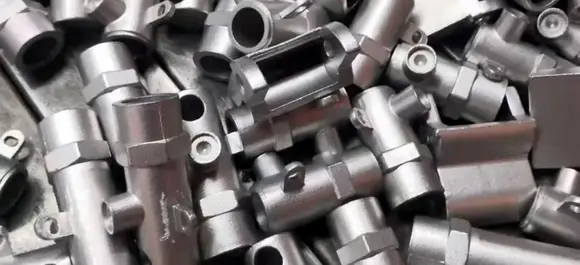Mobile:+86-311-808-126-83
Email:info@ydcastings.com
stainless steel casting
The Advantages and Applications of Stainless Steel Casting
Stainless steel casting is an advanced manufacturing process that allows for the creation of complex and highly durable components. This technique has gained popularity across various industries due to its unique properties and the advantages it offers compared to other metals and manufacturing methods. In this article, we will explore the benefits of stainless steel casting and its diverse applications.
What is Stainless Steel Casting?
Stainless steel casting involves pouring molten stainless steel into a mold to form desired shapes and components. This process can be executed using several methods, such as investment casting, sand casting, and lost-wax casting. Among these, investment casting is the most commonly used for producing intricate and fine details, while sand casting is preferred for larger, less detailed components.
Advantages of Stainless Steel Casting
1. Corrosion Resistance One of the primary benefits of stainless steel is its exceptional resistance to corrosion. Unlike regular steel, stainless steel contains chromium, which forms a passive oxide layer that protects the metal from rust and corrosion. Consequently, stainless steel castings are ideal for harsh environments, such as marine applications or chemical processing industries.
2. High Strength and Durability Stainless steel has excellent mechanical properties, providing high strength and durability. This makes it suitable for components that endure high levels of stress and wear. Cast stainless steel parts can withstand extreme temperatures and maintain their structural integrity, making them reliable for demanding applications.
3. Versatility Stainless steel casting can produce a wide variety of shapes and sizes, accommodating different industrial needs. From small precision components to large structural elements, the versatility of this process is unmatched. Furthermore, the ability to create complex geometries reduces the need for additional machining, thereby saving time and manufacturing costs.
4. Hygienic Properties Stainless steel is non-porous and easy to clean, making it the material of choice for industries requiring high hygiene standards, such as food processing, pharmaceuticals, and medical equipment. This property ensures that stainless steel castings do not harbor bacteria or contaminants, promoting safety and compliance with health regulations.
5. Aesthetic Appeal Stainless steel has a modern and sleek appearance, which is increasingly desired in various applications, from architectural elements to consumer products. The shiny finish of stainless steel castings not only enhances visual appeal but also adds a layer of protection against corrosion.
stainless steel casting

Applications of Stainless Steel Casting
Stainless steel casting is utilized in numerous industries, due to its wide range of properties and benefits. Some key applications include
- Aerospace Components such as turbine blades, structural supports, and exhaust systems utilize stainless steel castings for their strength and heat-resistant properties.
- Medical Devices Surgical instruments, implants, and equipment housings are often made from stainless steel castings due to their biocompatibility and ease of sterilization.
- Automotive In the automotive industry, stainless steel castings are used for exhaust systems, valves, and structural components that require durability and resistance to high temperatures and corrosion.
- Oil and Gas Equipment used in the extraction and transport of oil and gas often faces harsh environments. Stainless steel castings provide the necessary strength and corrosion resistance to withstand these conditions.
- Food and Beverage Equipment such as pumps, filters, and processing machinery benefit from stainless steel casting because of the material's hygienic properties and ability to endure cleaning processes.
Conclusion
In conclusion, stainless steel casting plays a crucial role in modern manufacturing, offering numerous advantages such as corrosion resistance, durability, and versatility. Its wide range of applications across multiple industries highlights the importance of this process in producing high-quality components that meet stringent industrial standards. As technology advances, the future of stainless steel casting looks bright, promising even more innovative solutions and applications.
-
Why Should You Invest in Superior Pump Castings for Your Equipment?NewsJun.09,2025
-
Unlock Performance Potential with Stainless Impellers and Aluminum End CapsNewsJun.09,2025
-
Revolutionize Your Machinery with Superior Cast Iron and Aluminum ComponentsNewsJun.09,2025
-
Revolutionize Fluid Dynamics with Premium Pump ComponentsNewsJun.09,2025
-
Optimizing Industrial Systems with Essential Valve ComponentsNewsJun.09,2025
-
Elevate Grid Efficiency with High-Precision Power CastingsNewsJun.09,2025











